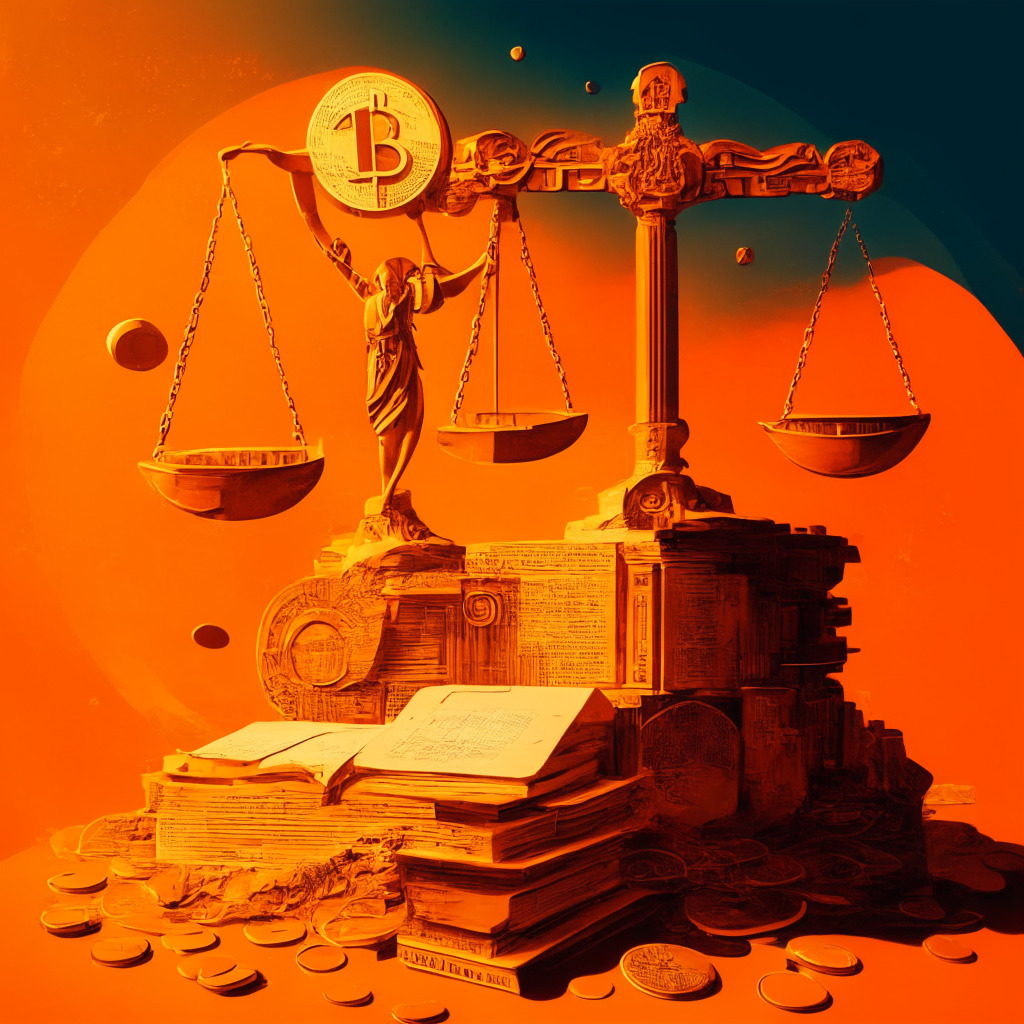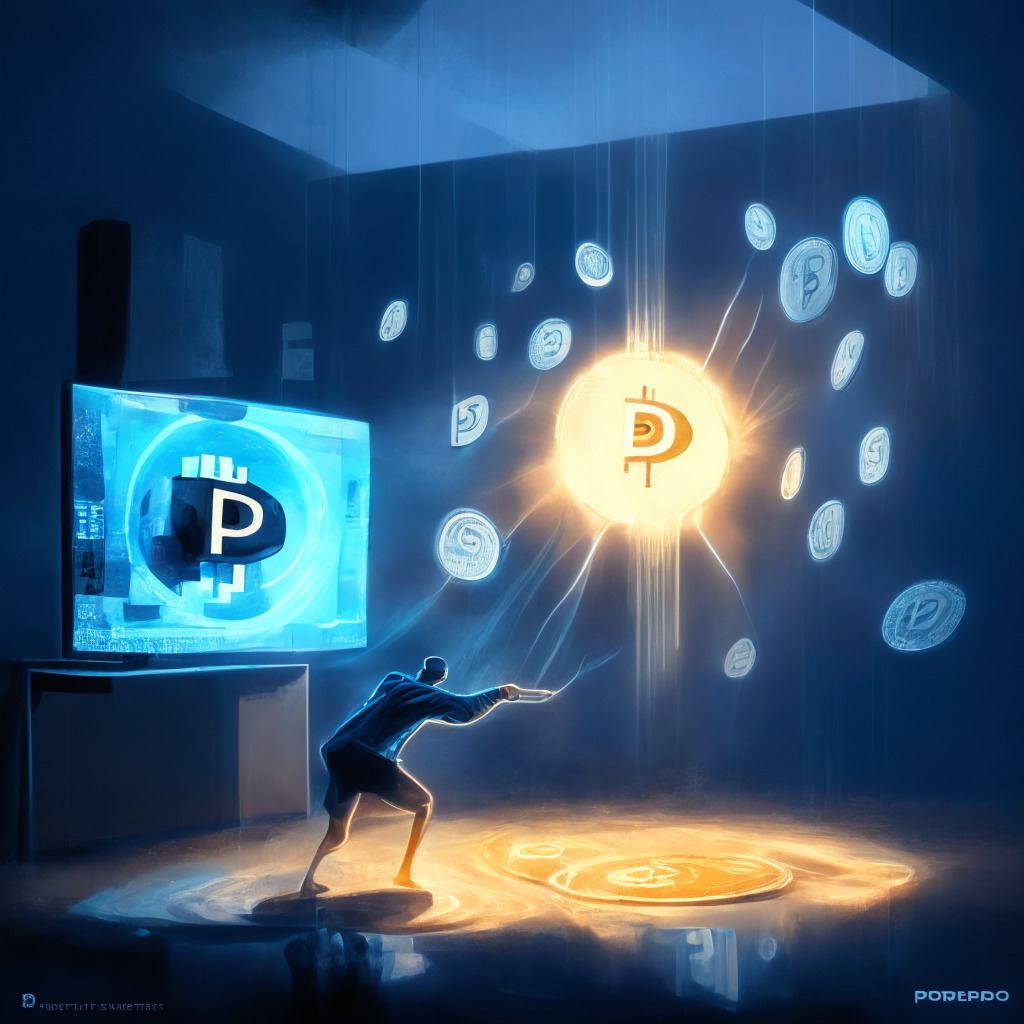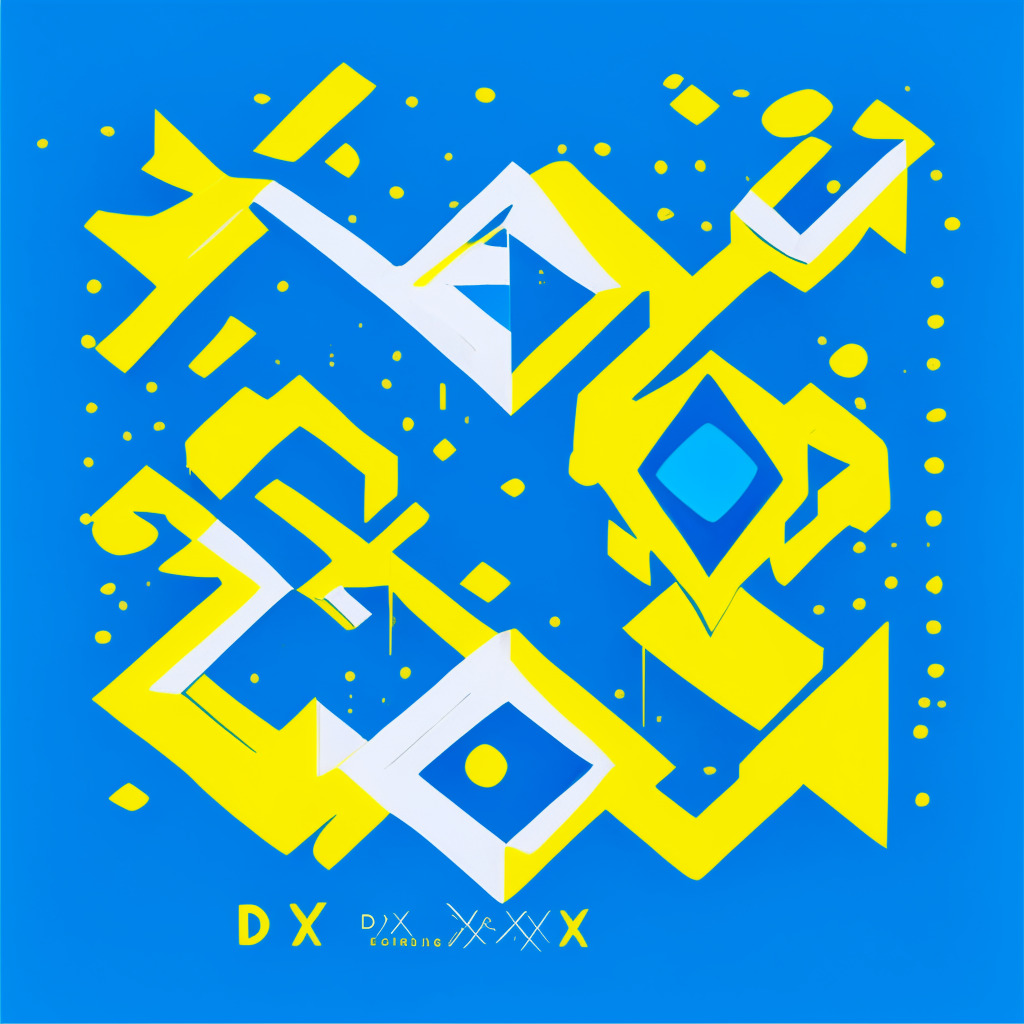EU officials are considering measures to make AI tools like OpenAI’s ChatGPT more transparent, addressing concerns over the spread of disinformation. Labeling AI-generated content could help users judge credibility but may raise concerns about freedom of expression and stifling creativity.
Search Results for: Meta Platforms
Crossroads of Innovation and Security: EU’s Proposed Regulations on Large-Scale AI Models
The European Union is reportedly discussing stricter regulations on large-scale language models (LLMs) like OpenAI’s GPT-4 and Meta’s Llama 2, aimed at controlling these models without overloading start-ups. These discussions touch on the implications of LLMs, user safety, and ethical AI deployment, mirroring the approach of the EU’s Digital Services Act.
Balancing Act: Innovation VS Privacy in Snapchat’s AI Chatbot Controversy
Snapchat’s AI chatbot “My AI” faces scrutiny from UK’s Information Commissioner’s Office due to potential privacy threats to users, including minors. The case highlights the struggle between leveraging tech breakthroughs and protecting user privacy in the hyperconnected social media landscape.
Immutable’s Blockchain Gaming Revolution: Promise of Golden Age or Expectations Trap?
Immutable is set to launch its Ethereum-based gaming platform, Immutable zkEVM, aiming to enhance the revenue model, player experience, and developer journey in the gaming world. With over 50 games committed to it, the platform is also planning technical upgrades to ensure better compatibility with Ethereum, aiming to foster a harmonious operational relationship between the two platforms.
Navigating the High-Stakes Landscape: The Bold Moves of DWF Labs in Crypto Venture Capitalism
“DWF Labs, a crypto investment firm, has made significant strides in token investing, changing industry norms by focusing on token value to projects. Their strategy targets nine macro-categories for risk diversification, concentrating on potential market adoptions and project team success. Investments include TON, EOS, and recent addition, Crypto GPT, as part of their risk mitigation strategy.”
Decentralized Social Network Friend.tech Surpasses Protocol Fees by ETH 11,000: A High Risk Success
Friend.tech, a decentralized social network built on Coinbase’s Base and linked to Twitter, is gaining traction with almost ETH 11,000 in protocol fees. It currently ranks third in 24-hour fees, surpassing established platforms like OpenSea, Tron, and layer-1 & layer-2 giants such as Uniswap, Bitcoin, and MetaMask.
Unveiling Busan’s Digital Asset Exchange: Transforming Asset Trading in South Korea
“City officials in Busan, South Korea, plan to launch a digital assets trading platform, leveraging fourth-generation blockchain technology. The platform, called Busan Digital Asset Exchange (BDX), aims to tokenize valuable assets and diversify its covered assets.”
Regulatory Scrutiny vs Technological Advancements: Navigating the Complex Crypto Landscape
Despite regulatory challenges and hacking threats, the crypto sphere continues to innovate, with enhanced privacy, user experience, and transaction efficiency. As Ethereum plans a major transformation and Ripple maintains its legal standing, the tokenized assets market could reach $16 billion by 2030. However, effective regulation remains vital to safeguard all stakeholders.
PayPal’s Crypto Integration and Binance’s Noble Deed: A Deep Dive into Pros, Cons & Verifiable Progress
“PayPal’s new feature allows U.S. users to convert cryptocurrencies to USD. However, this poses questions due to transaction costs, potential incompatibility with MetaMask, and Bitcoin transactions. Meanwhile, Binance’s generous disaster relief pledge raises issues regarding beneficiary verification.”
PayPal Broadens Crypto Horizons: USD Conversion Service Unveiled. Strides or Stumbles?
“PayPal has introduced a service allowing users to convert their digital currencies into US dollars. This ‘off-ramp service’ enables cryptocurrency wallet users to transition into USD for various uses. The service extends to decentralized applications and non-fungible token marketplaces. The collaboration with MetaMask plays an important role in this expansion.”
Mocaverse Funding Boosts Blockchain Evolution: Promise or Peril in Web3 Gaming?
Animoca Brands, a forefront player in the evolving blockchain technology sector, recently raised $20 million for their Web3 identity project, Mocaverse. This funding aims to advance Mocaverse by directing more resources towards product development, Web3 adoption, and building new alliances. However, there exist concerns about the project’s execution, data privacy and the balance between expansion and sustainability.
BluiCoin’s Dramatic Rise and Fall: A Precarious Sea or a Golden Opportunity? Vs. Wall Street Memes’ Ascending Wave: Risky Ride or a Sound Investment?
The crypto market recently witnessed an extraordinary surge of BluiCoin (BLUI), followed by a significant drop. Despite a turbulent market, BLUI’s trading volume and market cap indicate significant interest. The profitable rise and eventual fall may present a prime buying opportunity.
Harnessing Blockchain to Tame the AI Beast: Innovation or Involution?
“The introduction of blockchain with AI could enhance transparency, accountability, and audibility, reducing potential misuses of AI. Blockchain can secure data integrity when training AI models, enabling stakeholders to verify the decision-making process. However, real protection against intentional dangers of AI lies in decentralized, blockchain-based, social media platforms.”
Rising Star X2Coin’s Explosive Surge and Promising Future of Wall Street Memes Token
“X2coin, a new digital currency, has witnessed a staggering +14,000% price surge overnight. Despite initial excitement, a sudden price drop has led to rumours of a rug pull. Attention is now shifting towards another upcoming project, Wall Street Memes, promising potential huge returns for its large and engaged community.”
The Ongoing Evolution: Blockchain’s Intriguing Trajectory and Information Overwhelm Challenge
“Prominent firms SOMA Finance, MANTRA, and Tritaurian Capital are set to launch the first legally issued digital security for global and U.S retail investors via their SOMA token. Meanwhile, Bitget introduced “Snowball”, a tool for structuring investments, offering both principal protection and up to 24.5% APR. In other news, Microsoft has released four AI compilers aimed at optimizing AI models’ performance.”
Takashi Murakami’s NFT Adventure: Unpredictable Markets yet an Unwavering Faith in Digital Art’s Future
“Japanese artist Takashi Murakami’s introduction into the cryptoverse with Non-Fungible Tokens (NFTs) was impacted by the 2022 crypto collapse. Despite this, his belief in digital art remains strong, evident in his exhibition at San Francisco’s Asian Art Museum.”
dYdX’s Bold Leap: Migrating from Ethereum to Cosmos with Decentralized Order Books
“dYdX is introducing decentralized order books to their platform and is shifting from the Ethereum network to the Cosmos network. CEO Charles d’Haussy proposes an innovative blend of decentralization and speed, hosting order books within the validators. This ambitious transition seeks to achieve a ‘purely decentralized’ order book exchange while ensuring high-speed crypto derivative responses.”
Boosting Web3 Startups: Cronos Lab’s Accelerator Program Amid Security Concerns
“Cronos Labs has launched a recruitment phase for its $100M accelerator program, aiming to support early-stage projects that promote the adoption of decentralized applications (DApps). However, this strategy can inadvertently lure scammers using government-owned website URLs to dupe victims and access their crypto wallet holdings.”
Declining Bitcoin Presence on Exchanges: Indication of Changing Trade Dynamics or Signal of Caution?
“Bitcoin (BTC) holdings on centralized exchanges have decreased by 4%, reflecting a growing trend of traders using private wallets. This shift may mitigate massive sell-offs, but also raises concerns for new users dependent on exchanges. Recent security breaches have foregrounded the need for self-custody measures, as the crypto market undergoes a key metamorphosis.”
Decentralizing E-commerce: Analyzing the Revolutionary Potential of Bison Relay v0.1.8
The introduction of Bison Relay v0.1.8, a decentralized e-commerce system by Decred, is poised to transform digital retail dynamics. With features for enhanced user experience, this platform promotes increased control, improved privacy, and strengthened security in the online retail realm, potentially redefining the e-commerce landscape.
Future of Financial Forecasting: Embracing AI in Modern Finance with yPredict
“yPredict aims to revolutionize financial forecasting using AI-powered predictive tools and blockchain technology. It leverages ARIMA and LSTM models to predict Ethereum prices and reveal potential future price trajectories, offering a range of services for traders and AI/ML developers.”
A Rollercoaster Crypto Week: Triumphs, Tribulations, and the Quest for Unchartered Territories
“In a dynamic crypto week marked by revenue surges, privacy breaches, and promising tech advancements, we also see virtual activism in Metaverse, innovative crypto-related services, and increasing institutional embrace of digital assets. However, challenges persist with regulatory complexities and cyber threats.”
Navigating the Tides: US Treasury’s Proposed Crypto Regulations Stir Debate
The US Treasury and IRS propose new regulations making digital asset brokers accountable for reporting certain sales and exchanges. This move aims to simplify tax calculations, bring digital asset tax reporting on par with securities, and prevent tax evasion. Critics, however, see this as an attempt at excessive government control, potentially stifling the growth of decentralization and web3 adoption.
NFTs and the Creative Revolution: Tracing the Success of VR Artist Giant Swan amidst OpenSea’s Royalties Controversy
“In an era dominated by digital aesthetics, Non-Fungible Tokens (NFTs) have soared, offering artists unparalleled creative freedom. Particularly noteworthy is the Australian VR artist, Giant Swan, the first to put a 3D object on-chain. This innovation allows direct artist-collector sales, a leap forward from traditional social media trades. However, OpenSea’s choice to make creator royalties on secondary sales optional creates a significant challenge for creators striving for rightful compensation in an ever-evolving economy.”
KYC Regulations vs Permissionless Money: The Crypto Crossroads Unveiled by Tornado Cash Crisis
“The recent arrest of Tornado Cash founders has raised questions about the coexistence of KYC regulations and permissionless money. With platforms like Bitcoin’s Lightning Network and MetaMask allowing near-traceless transactions, the intrusion of KYC challenges the decentralization and anonymity that cryptocurrencies offer. This situation brings the future of crypto at a crossroads between regulatory vigilance and sector’s initial ethos.”
Shiba Inu Poised to Rally Beyond Bitcoin: Can SHIB Reach $1?
“AI, ChatGPT predicts SHIB could potentially reach $1 per token in the next 5-10 years, indicating massive gains for current holders. Such a rally could surpass Bitcoin’s return and Shiba Inu’s market cap would near a staggering $600 trillion.”
Prosper or Perish: The Fine Line Between Innovation and Mistrust in the Launch of Patricia Token
Patricia, a Nigerian cryptocurrency exchange, has launched its native token, Patricia token (PTK), aligning with the mainstream trend of cryptocurrency adoption. However, the move has raised suspicion due to prior issues with fund accessibility, absence on major crypto aggregators, and the planned conversion of outstanding balances to PTK without customer consent.
Integration of Real-World Assets and DeFi: The Future or a Paradox?
“Pendle Finance aims to integrate real-world assets within the digital finance ecosystem, opening access to traditional financial instruments. While this could attract large, off-chain institutional investors, it raises questions of blurring boundaries between decentralized finance and traditional systems.”
Digital Tussles: Examining the Role of Facebook in Thailand’s Crypto Scams
Thailand authorities have warned Facebook, threatening to restrict its operations due to the rampant investment and cryptocurrency scam ads on the platform. The Thai Ministry of Digital Economy and Society states that Facebook’s laxity led to an alarming number of fraudulent ads, with an estimated damage reaching over 10,000 million baht.
Facebook’s Crypto Ad Conundrum: Promoting Blockchain Innovation and Ensuring User Safety
Under growing global regulatory scrutiny, Meta (Facebook) faces ultimatums from Thailand’s DES against fraudulent cryptocurrency scams advertised on its platform. Via lax ad regulations, Facebook’s increasing embrace of blockchain and crypto simultaneously invites potential misuse by malicious actors, emphasizing the need for responsible blockchain adoption.
Facebook vs Thai Government: The Tug of War Over Crypto Scams and Platform Regulation
The Thai government and Facebook are potentially clashing over alleged crypto scams on the social media platform that have deceived over 200,000 Thais. Thailand’s Ministry of Digital Economy and Society faults Facebook for not adequately scrutinizing advertisers, thereby compromising user safety. This situation underscores tech platforms’ challenges of navigating the global digital market amidst varying regulations and cultural contexts. It also raises questions about the balance between user protection and stifling innovation.
Navigating the Future of Blockchain with AI: A Gate to Web3 or a Complex Tech Conundrum?
“Hive Blockchain shifts its focus to artificial intelligence as Hive Digital Technologies, while remaining committed to Bitcoin and crypto mining. The company envisions AI and blockchain jointly promoting the development of Web3, potentially enhancing user privacy and data ownership.”































